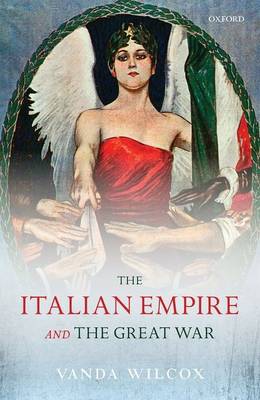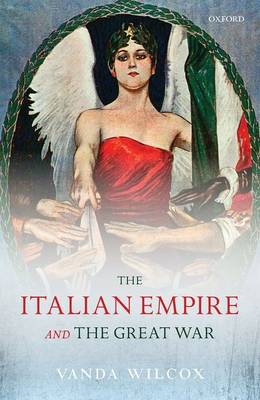
Bedankt voor het vertrouwen het afgelopen jaar! Om jou te bedanken bieden we GRATIS verzending (in België) aan op alles gedurende de hele maand januari.
- Afhalen na 1 uur in een winkel met voorraad
- In januari gratis thuislevering in België
- Ruim aanbod met 7 miljoen producten
Bedankt voor het vertrouwen het afgelopen jaar! Om jou te bedanken bieden we GRATIS verzending (in België) aan op alles gedurende de hele maand januari.
- Afhalen na 1 uur in een winkel met voorraad
- In januari gratis thuislevering in België
- Ruim aanbod met 7 miljoen producten
Zoeken
€ 56,45
+ 112 punten
Omschrijving
The Italian Empire and the Great War brings an imperial and colonial perspective to the Italian experience of the First World War. Italy's decision for war in 1915 built directly on Italian imperial ambitions from the late nineteenth century onwards, and its conquest of Libya in 1911-12. The Italian empire was conceived both as a system of overseas colonies under Italian sovereignty, and as an informal global empire of emigrants; both were mobilized to support the war in 1915-18. The war was designed to bring about 'a greater Italy' both literally and metaphorically.
In pursuit of global status, Italy fought a global war, sending troops to the Balkans, Russia, and the Middle East, though with limited results. Italy's newest colony, Libya, was also a theatre of the war effort, as the anti-colonial resistance there linked up with the Ottoman Empire, Germany, and Austria to undermine Italian rule. Italian race theories underpinned this expansionism: the book examines how Italian constructions of whiteness and racial superiority informed a colonial approach to military occupation in Europe as well as the conduct of its campaigns in Africa. After the war, Italy's failures at the Peace Conference meant that the 'mutilated victory' was an imperial as well as a national sentiment. Events in Paris are analysed alongside the military occupations in the Balkans and Asia Minor as well as efforts to resolve the conflicts in Libya, to assess the rhetoric and reality of Italian imperialism.
In pursuit of global status, Italy fought a global war, sending troops to the Balkans, Russia, and the Middle East, though with limited results. Italy's newest colony, Libya, was also a theatre of the war effort, as the anti-colonial resistance there linked up with the Ottoman Empire, Germany, and Austria to undermine Italian rule. Italian race theories underpinned this expansionism: the book examines how Italian constructions of whiteness and racial superiority informed a colonial approach to military occupation in Europe as well as the conduct of its campaigns in Africa. After the war, Italy's failures at the Peace Conference meant that the 'mutilated victory' was an imperial as well as a national sentiment. Events in Paris are analysed alongside the military occupations in the Balkans and Asia Minor as well as efforts to resolve the conflicts in Libya, to assess the rhetoric and reality of Italian imperialism.
Specificaties
Betrokkenen
- Auteur(s):
- Uitgeverij:
Inhoud
- Aantal bladzijden:
- 288
- Taal:
- Engels
- Reeks:
Eigenschappen
- Productcode (EAN):
- 9780198822943
- Verschijningsdatum:
- 24/08/2021
- Uitvoering:
- Hardcover
- Formaat:
- Genaaid
- Afmetingen:
- 163 mm x 238 mm
- Gewicht:
- 594 g

Alleen bij Standaard Boekhandel
+ 112 punten op je klantenkaart van Standaard Boekhandel
Beoordelingen
We publiceren alleen reviews die voldoen aan de voorwaarden voor reviews. Bekijk onze voorwaarden voor reviews.









